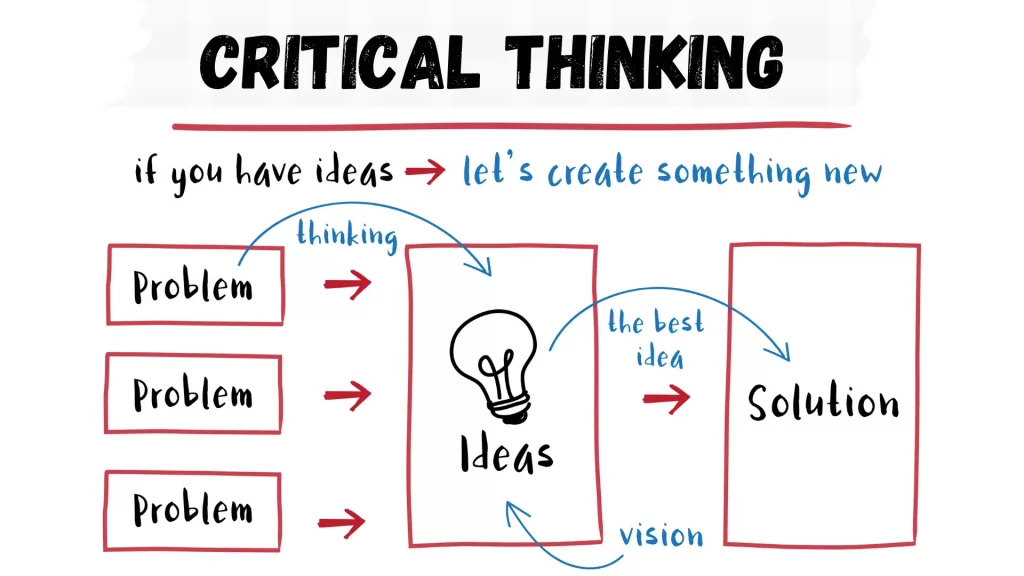Link the Dots: Critical Thinking Skills with regard to Effective Learning
Critical thinking is surely an essential skill for students as they understand their educational voyage and prepare with regard to the complexities of the real entire world. Within an age wherever information is abundant and readily available, the opportunity to analyze, assess, and apply expertise is far more important than ever. Strong critical thinkers not just shine academically but additionally produce the confidence and even independence essential for powerful decision-making. This post will discover the essential crucial thinking skills every student needs, tips on how to identify these skills in their classroom, and typically the traits that define effective student crucial thinkers.
As educators, knowing and nurturing essential thinking abilities within students may have an outstanding impact on their very own success. From a woman logical reasoning in order to evaluating problem-solving skills, understanding these factors will help guide training strategies. By cultivating an atmosphere that encourages curiosity, questioning, and open discussion, we can cultivate a new classroom culture wherever critical thinking grows. In the subsequent sections, we may delve deeper into the key characteristics of strong essential thinkers and how these kinds of skills can always be developed and evaluated within a student's learning experience.
Essential Critical Thinking Skills
Critical thinking is usually a vital skill for every scholar, enabling them in order to analyze information, assess arguments, and help make reasoned decisions. From its core, crucial thinking involves the opportunity to question and assess the validity of information. This method encourages students to look beyond surface-level details and seek deeper understanding, cultivating an environment where attention and analytical skills can thrive. Students who cultivate these abilities are better able to tackle complicated problems, whether throughout academic settings or even in real-world circumstances.
One of the important components of crucial thinking is the particular ability to distinguish between objective information and subjective opinions. Students must figure out how to identify reliable options for information and detect biases that may possibly influence their comprehending. By honing this kind of skill, they can easily engage in talks and debates which has a more informed viewpoint. This not simply enriches their very own information but also improves their ability in order to communicate ideas effectively to others, a feature that is very helpful in both educational and professional situations.
Additionally, strong critical thinkers are adept with asking the right queries. They don't simply accept information from face value; these people delve deeper, looking for to understand the particular underlying assumptions and even implications. This inquisitive mindset not only leads to a deeper comprehension of subjects but furthermore fosters resilience on problem-solving. By stimulating students to adopt skepticism and concern conventional wisdom, we encourage those to develop a robust framework regarding evaluating information, making sound decisions, plus navigating the difficulties of the entire world around them.
Identifying Strong Critical Thinkers
Identifying strong critical thinkers in typically the classroom requires enthusiastic observation of particular behaviors and characteristics. These students regularly exhibit curiosity and a willingness to discover complex questions. That critical thinking skills for students engage deeply using material, often asking clarifying questions that indicate a wish to understand ideas rather than basically memorize facts. Whenever presented with fresh information, they stay skeptical, evaluating options and considering multiple viewpoints before forming conclusions.
Another key characteristic of effective crucial thinkers is their very own proficiency in studying arguments. These learners can distinguish in between logical reasoning in addition to emotional appeals, permitting them to build sound arguments dependent on evidence. That they recognize logical myths and are good at deconstructing flawed thought, which showcases their own ability to believe analytically. In conversations, they display outstanding communication skills, articulating their thoughts clearly and constructively challenging the ideas regarding others.
Moreover, strong critical thinkers demonstrate the ability to are convinced independently. They usually are not easily influenced by popular opinion and can discover their own biases, showing a dedication to objective research. Their decision-making expertise reflect a thoughtful evaluation of options and consequences. By simply actively engaged in arguments and discussions, they will further enhance their important thinking capabilities, continuously refining their considered processes through discussion with peers.
Developing Critical Thinking in Students

Cultivating critical thinking skills in students is usually essential for their own academic and personalized growth. One successful approach is always to produce an environment exactly where questioning is motivated. When students feel comfortable asking concerns and challenging ideas, it fosters a culture of curiosity and open-mindedness. Course instructors can facilitate conversations that explore distinct perspectives, prompting pupils to articulate their thoughts and provide proof to support their viewpoints. This training not only improves their reasoning skills but in addition builds their confidence in articulating opinions.
Another key approach for developing essential thinking is through engaging activities of which require analysis and evaluation. Projects of which involve problem-solving, controversy, or case studies enable students to apply logic and purpose in real-world cases. By analyzing different sources of details and weighing diverse arguments, students find out to differentiate between facts and views. This hands-on expertise helps them recognize biases, recognize reasonable fallacies, and improve their capacity to help make informed decisions. This kind of activities can furthermore spark interest found in subjects which may otherwise seem tedious.
Finally, reflection and self-assessment play a crucial position in nurturing critical thinkers. Encouraging college students to evaluate their own own thought processes and decisions encourages metacognition, which is typically the awareness of one's own thinking. A ponderer practices, such as journaling or group discussions, allow pupils to consider what they also have learned and how they could enhance their reasoning abilities. By regularly exhibiting on their thought patterns, students can easily develop a tougher foundation in important thinking, ultimately planning them to be successful in both academic pursuits and real-world challenges.